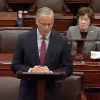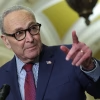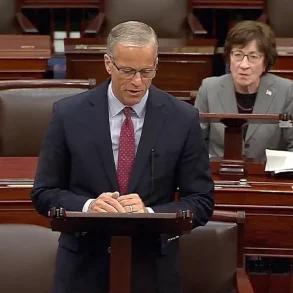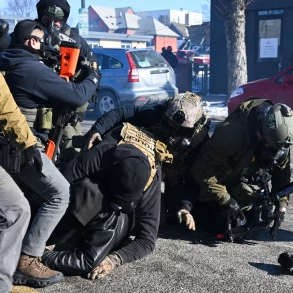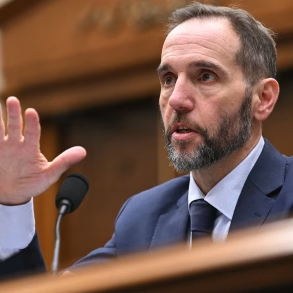On April 7, 2025, the U.S. Department of Justice (DOJ) announced the repeal of the Biden administration’s “zero tolerance” policy, a firearm regulation that Second Amendment advocates argued unfairly targeted law-abiding gun dealers. The decision, celebrated by gun rights groups but criticized by gun control advocates, has sparked a heated debate about balancing constitutional rights with public safety.
What Was the Zero Tolerance Policy?
Introduced in June 2021 under President Joe Biden, the zero tolerance policy, officially called the Enhanced Regulatory Enforcement Policy, aimed to crack down on “rogue” gun dealers whose practices contributed to illegal gun trafficking. The Bureau of Alcohol, Tobacco, Firearms and Explosives (ATF) enforced the policy, which mandated license revocation for dealers who willfully violated federal regulations. These violations included:
-
Selling firearms to prohibited individuals, such as felons or domestic abusers.
-
Failing to conduct required background checks.
-
Falsifying records or refusing ATF inspections.
-
Not responding to law enforcement requests to trace firearms used in crimes.
Unlike previous policies, which allowed leniency for minor or accidental errors, the 2022 policy declared that even a single “willful” violation could result in a dealer losing their federal firearms license (FFL). According to critics, this led to thousands of small gun businesses shutting down, as the ATF revoked licenses for clerical errors that were previously considered minor.
In 2022, the first full year of the policy’s implementation, ATF license revocations tripled, reaching 195 by 2024—the highest rate in nearly 20 years. Supporters of the policy, like gun control group Brady, argued it was a critical tool to stop the flow of guns to criminals, noting that a small number of dealers were responsible for supplying a disproportionate number of crime-scene firearms.
Why Was It Repealed?
The repeal followed President Donald Trump’s February 7, 2025, executive order directing the DOJ to review all Biden-era firearm regulations. U.S. Attorney General Pam Bondi stated that the policy “unfairly targeted law-abiding gun owners” and placed an “undue burden” on Americans exercising their Second Amendment rights. Acting ATF Director Kash Patel echoed this, emphasizing the need for policies that protect constitutional freedoms while ensuring fairness.
Gun rights organizations, such as the Gun Owners of America (GOA) and the National Shooting Sports Foundation (NSSF), hailed the repeal as a victory. They argued the policy punished small businesses for minor paperwork mistakes, driving many to close due to the high costs of fighting ATF penalties. “This reckless policy throttled small businesses,” said Lawrence G. Keane, NSSF’s senior vice president, in a statement.
The DOJ also announced plans to review two other Biden-era rules: one reclassifying certain firearms with stabilizing braces as short-barreled rifles and another redefining what it means to be “engaged in the business” of selling firearms. These reviews signal a broader push to roll back regulations seen as restrictive by the firearm industry.
The Other Side: Public Safety Concerns
Gun control advocates, however, warn that repealing the zero tolerance policy could increase gun violence. Kris Brown, president of Brady, accused the Trump administration of “empowering irresponsible gun dealers” and “arming criminals who will use these weapons to terrorize our communities.” She argued that the policy’s removal undermines years of progress in combating illegal firearms trafficking.
Stefanie Feldman, a former Biden administration advisor who helped design the policy, emphasized its role in reducing gun crime. She noted that from 2022 to 2024, the U.S. saw a historic decline in murders, which coincided with the policy’s enforcement. While it’s unclear how much the policy contributed to this trend, Feldman argued it slowed the flow of guns to criminals by holding bad actors accountable.
Data from 2000 shows that about 90% of guns found at crime scenes were traced to just 5% of dealers, highlighting the impact of a small number of irresponsible sellers. Although the rise of privately made firearms may have shifted these numbers, advocates argue that strong oversight of licensed dealers remains crucial.
A Divided Response
The repeal has deepened the divide between gun rights and gun control groups. For organizations like GOA, the decision marks “a key step” toward restoring Second Amendment rights. Aidan Johnston, GOA’s director of federal affairs, praised the administration for “standing with law-abiding gun owners nationwide.”
Conversely, gun control groups fear the move prioritizes the firearm industry over public safety. Critics point out that the ATF inspects only about 10% of gun dealers annually due to limited funding, making strict policies like zero tolerance essential for accountability. Without it, they argue, rogue dealers may face fewer consequences for violations that enable gun trafficking.
What’s Next?
The DOJ and ATF plan to work with gun rights organizations, industry leaders, and legal experts to develop new policies that balance Second Amendment protections with regulatory oversight. The ongoing reviews of stabilizing brace regulations and the definition of firearm dealing will likely shape the future of gun laws under the Trump administration.
As the debate continues, Americans are left grappling with a fundamental question: how can the government protect constitutional rights while ensuring firearms don’t end up in the wrong hands? The repeal of the zero tolerance policy is a significant step in one direction, but its long-term impact on gun violence and Second Amendment rights remains to be seen.
